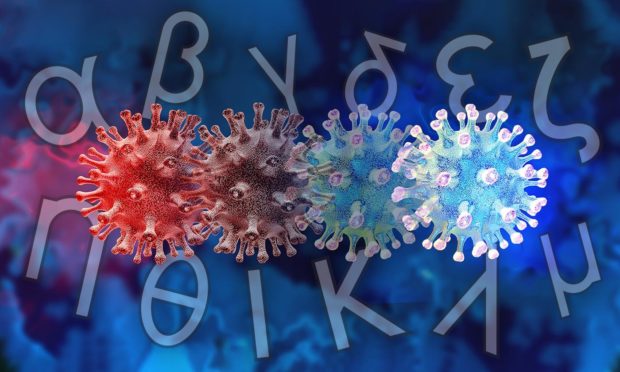The emergence of a new Covid variant has led to travel restrictions and quarantines.
But what do we know about the new variant, known as Omicron (B.1.1.529).
And how worried should we be about this new mutation?
What do we know about the Omicron variant?
More details are emerging all the time.
Secretary of State Sajid Javid told parliament this morning that there are no detected UK cases – although it is a ‘fast moving situation with a high degree of uncertainty’.
This variant is of huge international concern.
Sajid Javid
He says the variant is ‘of huge international concern’ and that the World Health Organisation is holding a meeting today to discuss it.
The variant was thought to have emerged in Botswana and scientists first became aware of it on November 23.
Worldwide there are less than 100 cases currently.
So why are scientists worried?
Many experts have raised concern at how quickly this variant has spread and how heavily mutated it is.
It’s early days, but Tulio de Oliveira, Director of Centre for Epidemic Response & innovation, South Africa, says B.1.1.529 spread quickly.
In fact, in two weeks it now dominates all infections in South Africa.
This new variant is really worrisome at the mutational level. South Africa and Africa will need support (financially, public health, scientific) to control it so it does not spread in the world. Our poor and deprived population can not be in lockdown without financial support. pic.twitter.com/CeJIXudUIA
— Tulio de Oliveira (@Tuliodna) November 25, 2021
Will our vaccines work against Omicron?
Vaccine manufacturers were confident jags would give protection against previous mutations.
However, it is possible that vaccines will be less effective at protecting against variants that did not exist when the jags were first created.
A Scottish Government spokesman said: “We do not know at this stage what, if any, impact the new variant will have on the effectiveness of vaccines.
“However, it is vital those who are eligible to receive a Covid-19 vaccination continue to come forward.”
It’s reported senior figures in South Africa’s Covid-19 committee say weeks of tests will need to be run before understanding the threat Omicron poses to vaccine efficacy.
What are the precautions?
UK Secretary of State Sajid Javid says travel restrictions are in place. Six African countries have been added to the red travel list.
All travellers returning to Scotland from South Africa, Namibia, Lesotho, Eswatini, Zimbabwe and Botswana will be required to self-isolate and take two PCR tests from noon today, regardless of their vaccination status.
COVID-19 UPDATE:@UKHSA is investigating a new variant. More data is needed but we're taking precautions now.
From noon tomorrow six African countries will be added to the red list, flights will be temporarily banned, and UK travellers must quarantine.
— Sajid Javid (@sajidjavid) November 25, 2021
Are new variants common?
Since the outbreak of the Covid pandemic, new variants of the virus have emerged – some with different symptoms and others with varying degrees of risk.
A report by The Financial Times says more than 1,500 recognised lineages of the Sars-Cov-2 virus have emerged since the pandemic began.
It is normal for a virus to mutate over time as it spreads through the population.
Sometimes these come to nothing and die off. And experts believe global vaccination has gone some way to slowing new mutations.
